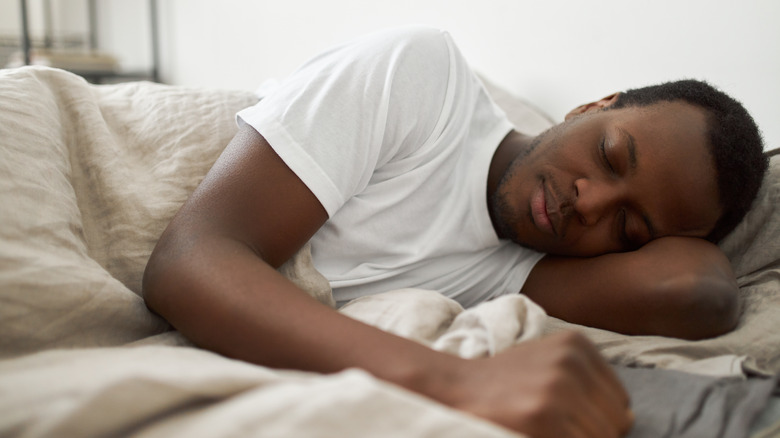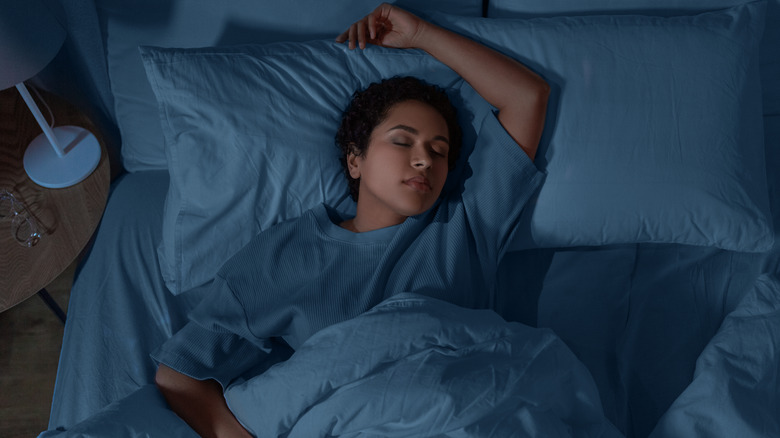When You Listen To Music Before Bed, This Is What Happens
Babies often listen to lullabies to soothe them to sleep, but once we grow up, lullabies go out the window. What would happen if we continued listening to calming music at bedtime, even as adults?
When soundwaves enter the ears, the body turns them into electrical signals that the brain then interprets, according to the Sleep Foundation. The physical effects they trigger can either help or hinder sleep. For example, a 2012 review published in Noise & Health showed that excessive nighttime noise, such as traffic, noisy neighbors, and even church bells, not only gets in the way of good sleep but can also be linked to adverse health conditions, like cardiovascular disease and stroke. Alternatively, listening to music that has a rhythm of around 60 beats per minute (BPM) can help your heart rate slow down, relaxing the body (via WebMD). Since our resting heart rate can be as high as 100 BPM, this music can be effective in calming our bodies and slowing down our heart rates (via Sleep Foundation).
How can music help improve sleep?
When we listen to certain music before bed, sleep can improve in a number of ways. In one study published in the Journal of Advanced Nursing, older adults who listened to 45 minutes of sedative music before bed found that they slept better, fell asleep faster, slept for longer periods of time, were less disturbed during sleep, and were more functional during the day. As the 3-week trial went on, these qualities improved.
Another study published in the Journal of Community Health Nursing looked at older women who experienced insomnia and listened to self-selected playlists before bed for 10 days straight. While it normally took them 27-69 minutes to fall asleep, listening to music at bedtime shortened that time to just 6-13 minutes (via the Sleep Foundation).
Scientists suspect that the reason music can improve sleep has to do with hormones (via Sleep Foundation). It's believed that listening to music can decrease the stress hormone, cortisol, and increase the feel-good hormone, dopamine. Not only that, but music can relax the autonomic nervous system, which is responsible for unconscious functions, like breathing and heart rate. Music can also distract from anxious or worrisome thoughts when trying to fall asleep.
Adding music to your nightly sleep routine can help promote sleep (via Sleep Foundation). Try making it a habit, using speakers instead of headphones or earbuds, and choosing music that relaxes you without evoking a strong emotional response.


